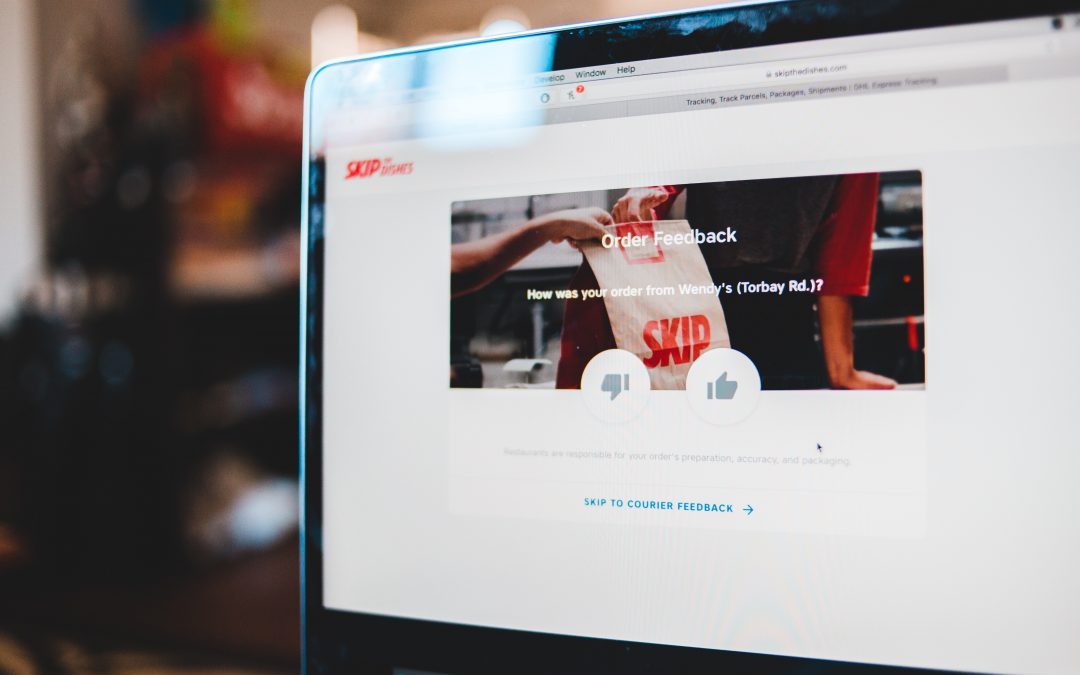By Carina Rolley
A new year is here, and with it comes a new opportunity to improve the customer experience.
This is mission critical for brands. Studies have found that about one-third of consumers worldwide will abandon a brand after just one bad experience.
That means now is the time for your brand to improve the customer experience by finding areas that need an upgrade and turning those weaknesses into strengths this year. Because so much of the customer experience happens online, strengthening your digital ecosystem is a key component to better CX.
Here’s a checklist to use as you resolve to improve customer experience in 2021.
Improving the customer experience starts with your website
As more customer traffic moved to online channels in 2020, site performance and accessibility are more important than ever. Ask yourself:
- What’s in your Google Core Web Vitals report? Google has long promoted fast page load times and mobile friendliness for better customer experience and as ranking signals. In mid-2020 the company announced the upcoming rollout of a new way to evaluate site performance based on real-world user experience data. Find your Core Web Vitals report on your site’s Google Search Console. Start with the Poor and Needs Improvement tabs to jump-start your CX improvements list.
- How accessible is your website? One in four adults in the U.S. lives with a disability. Does your site serve customers with hearing, vision, or other conditions by including alternate descriptive text for product photos, graphics and other media? Are there transcripts or captions for your product videos and webcasts? You can start evaluating your site using the Web Accessibility Initiative’s Easy Checks guidelines and use their resources for selecting more comprehensive accessibility evaluation tools.
Make it easy for customers to buy from you
Long gone are the days when a brand could simply focus on making the best product and expect customers to follow. Consumers today want choices. Consider these questions:
- Can customers test or virtually experience your products or services? In today’s low- to no-contact marketing and sales environment, some customers expect rich media experiences, trial periods and guidance from sales reps to help them make the right purchasing decisions. Some customers prefer a self-serve option, where they can configure a product or service themselves and purchase it all at the click of a few buttons.
- Do you offer a variety of purchase options? Subscription plans, new product bundles, and upgraded service delivery options are increasingly popular. More than 70% of adults have at least one subscription service Many retailers also offer product bundles, such as a hair-care bundle that includes shampoo, conditioner, and styling product. Others, like Amazon, suggest that shoppers bundle items that are frequently bought together by other customers, a strategy that can boost revenue.
- Do you offer incentives like rebates or financing? Consumers increasingly expect low- or no-interest installment payment options from retailers. That space is so lucrative that major credit cards now offer cardholders no-interest, pay-over-time options on some purchases.
Double down on customer service
The pandemic put the spotlight on customer service as brands dealt with frantic customers dealing with the repercussions of lockdown orders. Customers needed fast answers, putting pressure on service teams to respond quickly, with compassion.
Service must remain a priority for brands as they look to improve the customer experience. Here are three top considerations:
- Is your customer service easy to access and helpful? Many brands added customer service chatbots to their websites in 2020 to ease demand on their customer service agents and help customers get answers quickly. Chatbots offer immediate assistance on basic issues, but they usually can’t answer complex questions. Give users an option to talk with another person and to make sure that your chatbot gets smarter over time.
- Do you send personalized reminders to customers about maintenance schedules? This kind of messaging not only creates positive touch points that remind your customers you care about them, but can also help avoid problems caused by deferred maintenance that could reduce customer satisfaction.
- Do you roll out new features and improvements as they become available? SaaS customers expect their solution providers to deliver updates and upgrades seamlessly, without requiring customers to keep tabs on what’s new. Like maintenance reminders, solution updates can positively influence customer perception and product performance.
4 steps for improving customer experience
As everyone knows, many New Year’s resolutions don’t last long. How can you make good on your vow to improve CX? Here are some best practices.
1. Work with customer insights. Recent and frequently updated survey data, customer reviews, and feedback to your customer support team can guide your CX priorities. Think of customer feedback as the “coach” that’s helping you improve.
2. Get support from the team. Buy-in from higher ups and key people on your team always matters. Make sure stakeholders are clear on your new CX goals and eager to achieve them before you start enacting changes.
3. Start small. Your CX goals will be easier to reach if you start with small, easy-to-achieve actions that deliver quick results. For example, a few hours devoted to site speed adjustments can usually deliver measurable improvements in page load times right away and increase conversions.
4. KPIs. Make sure you’re measuring things that can help you achieve your 2021 CX goals. Identify the key performance indicators that can measure your team’s progress toward more customer engagement, conversion, or another goal.
Keeping resolutions isn’t always easy—that’s why we give ourselves an entire year to accomplish major multi-step goals. However, with a solid checklist of CX elements to improve, a supportive team to implement them, and a way to track your gains along the way, 2021 can be the year you exceed your customers’ expectations.
See Original Article at The Future of Customer Engagement and Experience



